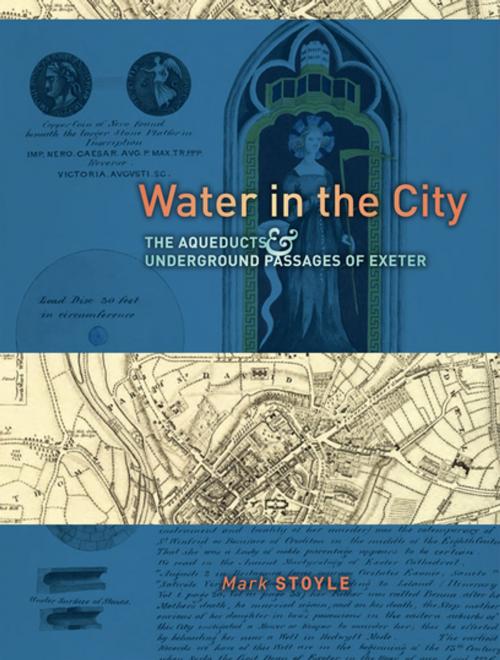Water in the City
The Aqueducts and Underground Passages of Exeter
Nonfiction, History, Medieval, British| Author: | Mark Stoyle | ISBN: | 9780859899741 |
| Publisher: | University of Exeter Press | Publication: | May 1, 2015 |
| Imprint: | University of Exeter Press | Language: | English |
| Author: | Mark Stoyle |
| ISBN: | 9780859899741 |
| Publisher: | University of Exeter Press |
| Publication: | May 1, 2015 |
| Imprint: | University of Exeter Press |
| Language: | English |
The city of Exeter was one of the great provincial capitals of late medieval and early modern England, possessing a range of civic amenities fully commensurate with its size and importance. Among the most impressive of these was its highly sophisticated system of public water supply, including a unique network of underground passages. Most of these ancient passages still survive today.
Water in the City provides a richly illustrated history of Exeter's famous underground passages—and of Exeter’s system of public water supply during the medieval and early modern periods. Illustrated with full colour throughout, Mark Stoyle shows how and why the passages and aqueducts were originally built, considers the technologies that were used in their construction, explains how they were funded and maintained, and reveals the various ways in which the water fountains were used and abused by the townsfolk.
The city of Exeter was one of the great provincial capitals of late medieval and early modern England, possessing a range of civic amenities fully commensurate with its size and importance. Among the most impressive of these was its highly sophisticated system of public water supply, including a unique network of underground passages. Most of these ancient passages still survive today.
Water in the City provides a richly illustrated history of Exeter's famous underground passages—and of Exeter’s system of public water supply during the medieval and early modern periods. Illustrated with full colour throughout, Mark Stoyle shows how and why the passages and aqueducts were originally built, considers the technologies that were used in their construction, explains how they were funded and maintained, and reveals the various ways in which the water fountains were used and abused by the townsfolk.















